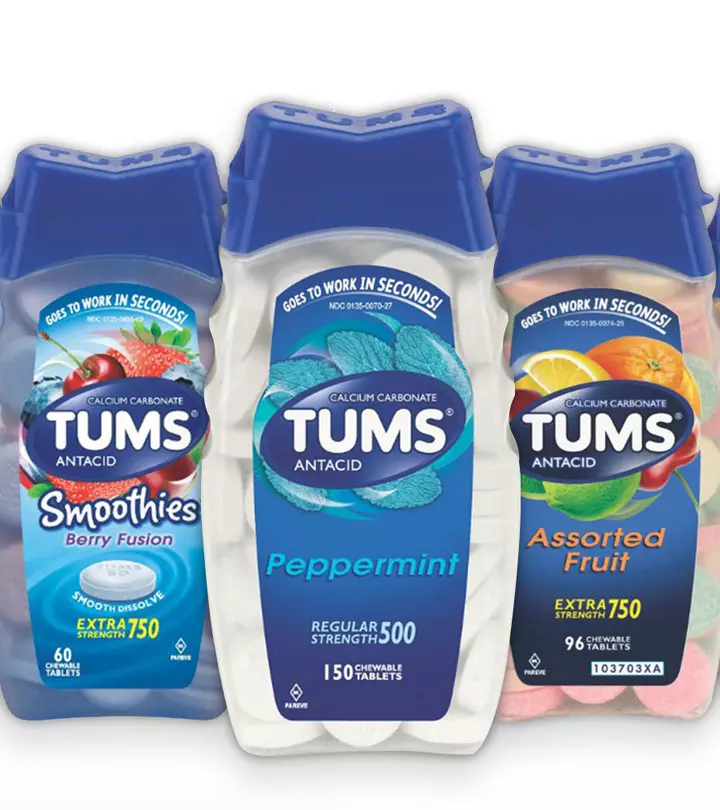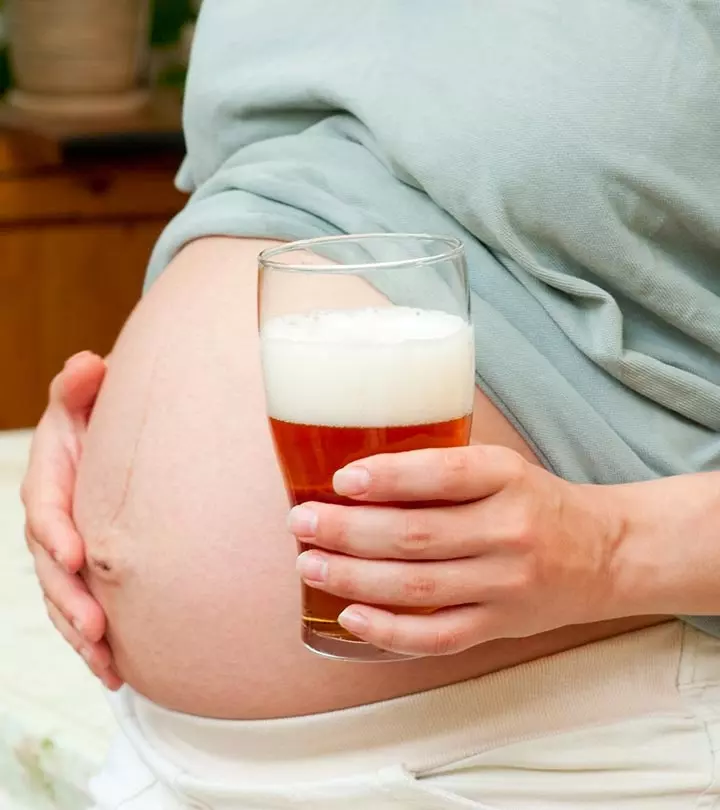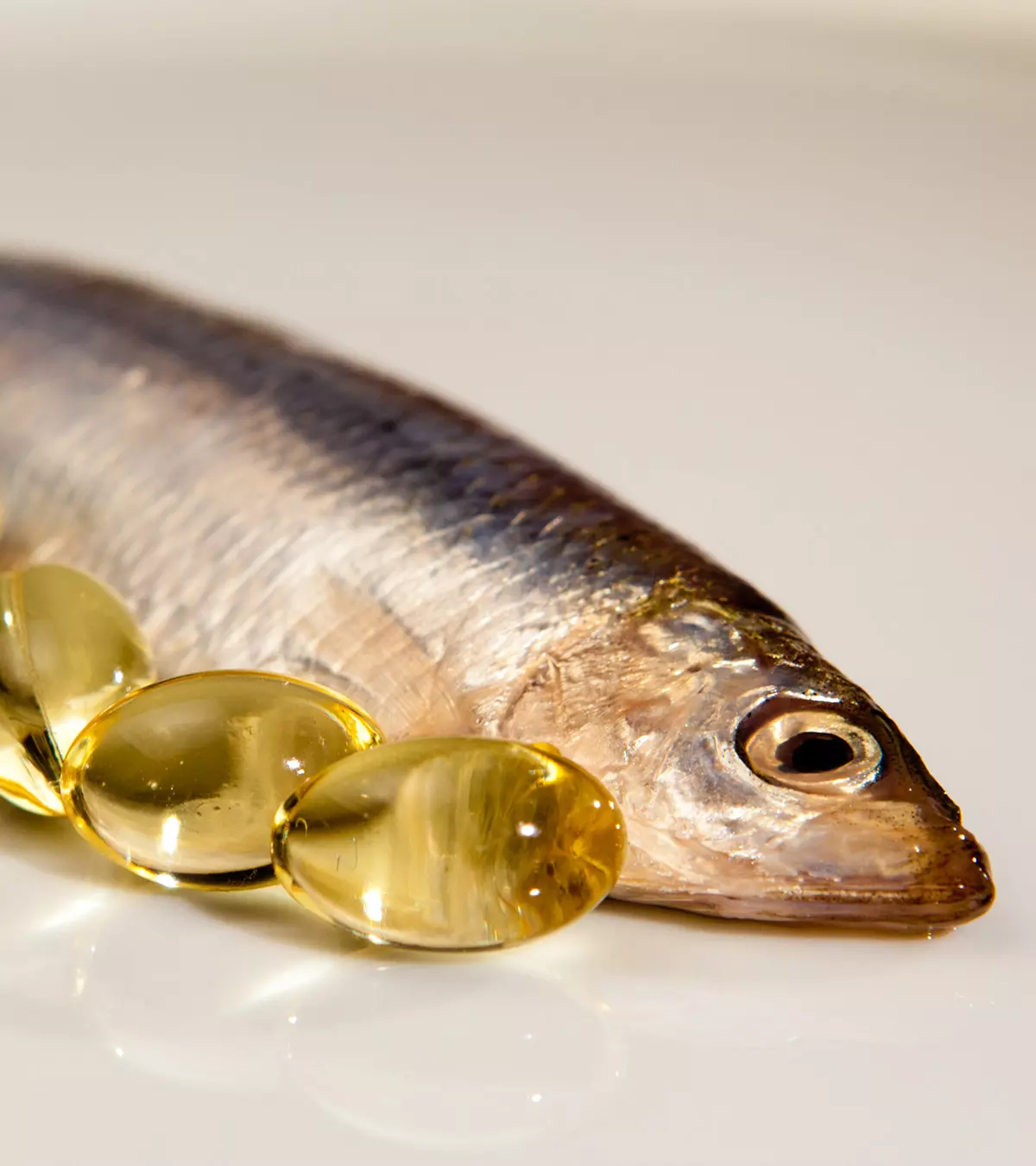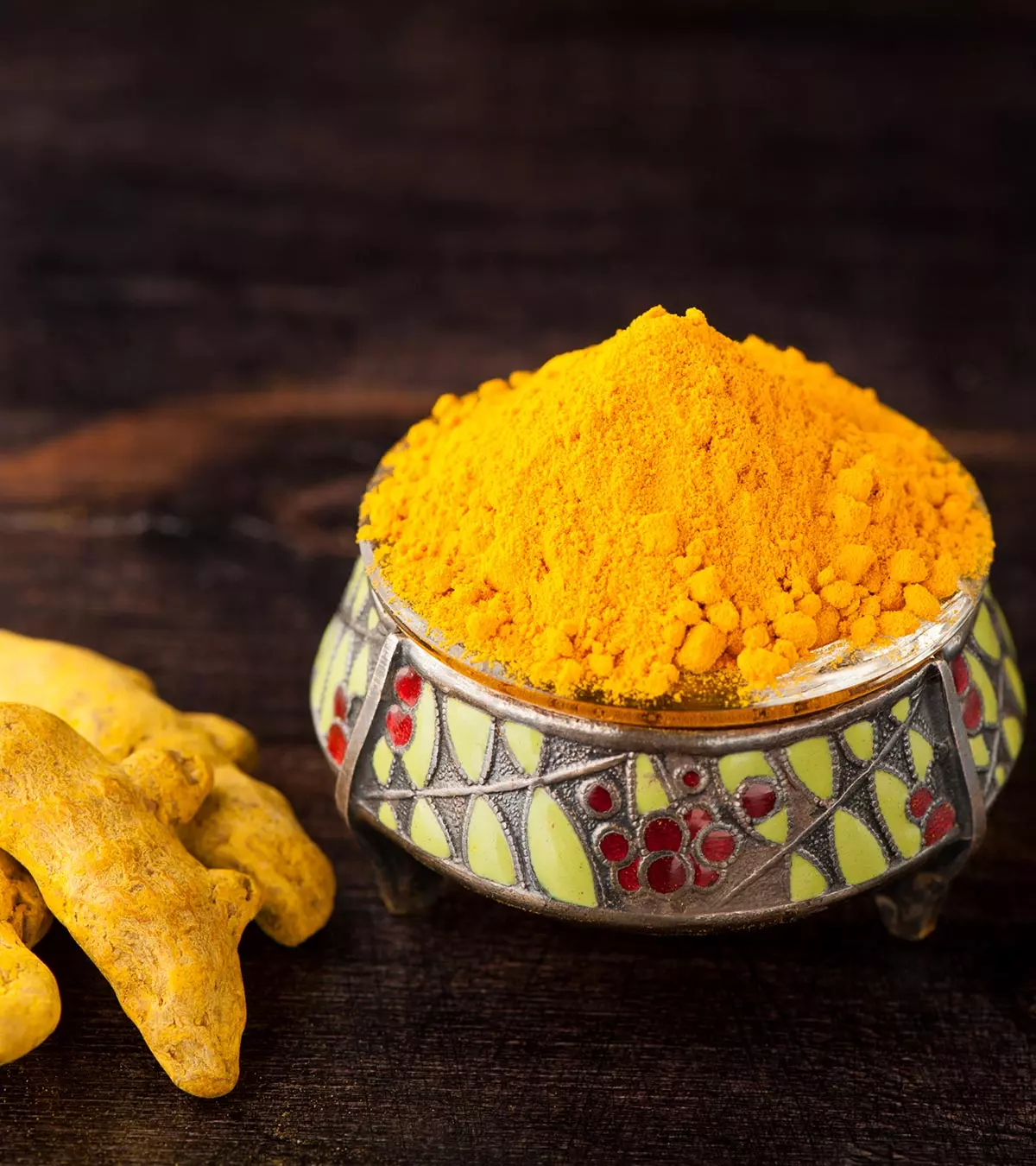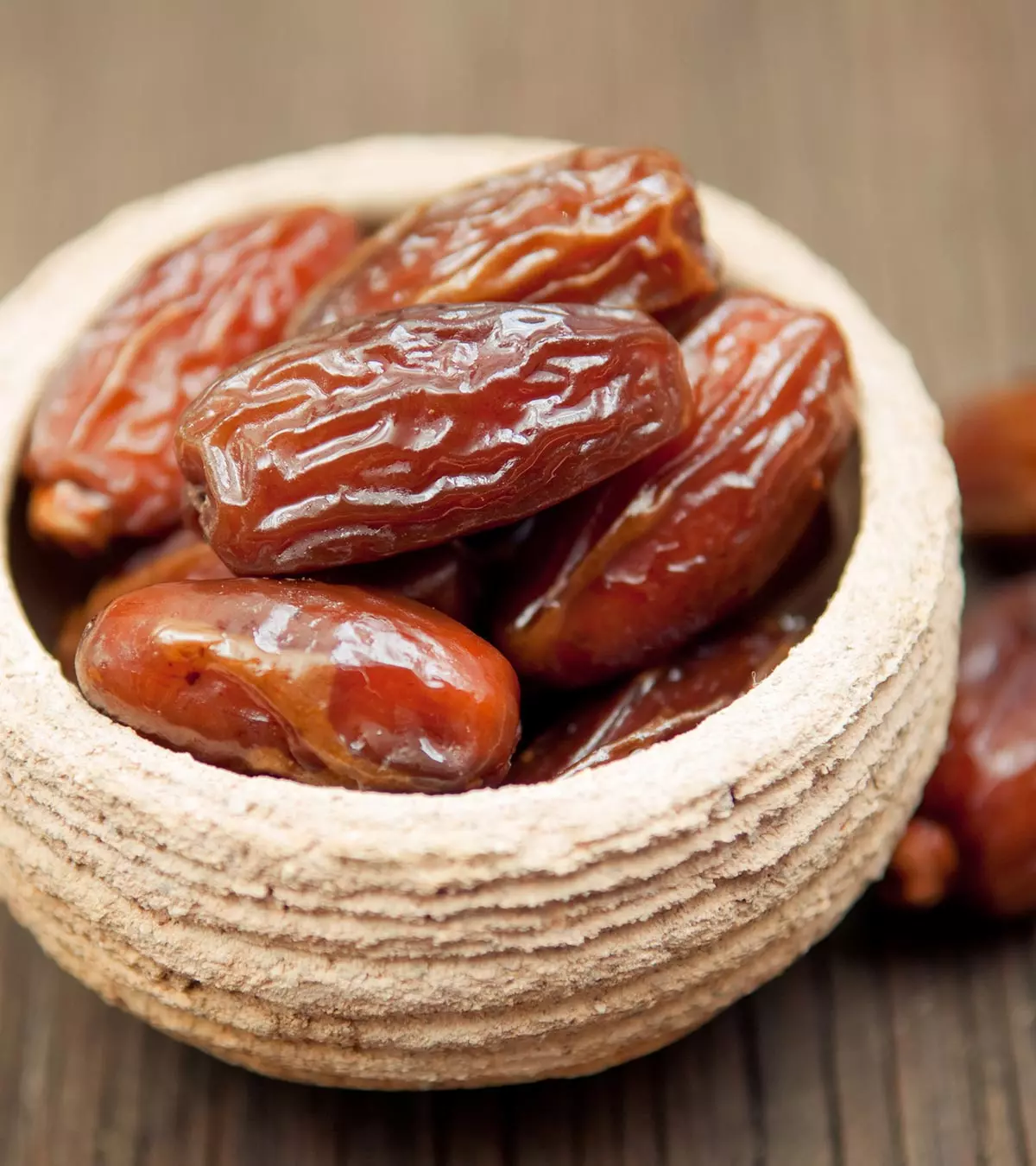
Image: Shutterstock
Many parents resort to biscuits for babies as a quick snack option when on the go and even at home. Commercial biscuits are typically prepared with flour (leavened or unleavened), fat, sugar, and salts. They may also contain other ingredients, such as milk, eggs, seeds, dried fruits, and nuts.
Biscuits are easily available, affordable, and offer a vast selection range. However, while commercial biscuits look appealing, it should be considered whether they are safe or have any hidden ingredients you should check for.
Read on to know more about commercial biscuits and whether they are safe for babies, reasons to avoid or limit them, and healthy alternatives to try.
Key Pointers
- Packaged foods like biscuits are unhealthy for children and should be replaced with fresh fruits and vegetables.
- Store-bought biscuits contain refined flour, sugar, salt, and many other ingredients that may adversely affect your baby.
- For teething purposes, offer low-sodium, unsweetened biscuits to your babies.
- Homemade biscuits with whole grains, nuts, seeds, and pulses are suitable for babies if given in moderation.
Can Babies Eat Biscuits?
According to the NHS, parents should avoid feeding packaged baby snacks, such as biscuits, as it’s not a healthy replacement to freshly made baby food (1)(2)
. Instead, it is advisable to feed healthy baby snacks and foods, such as fresh fruits and vegetables, to babies.
However, for functional reasons, such as teething, babies older than six months can consume low-sodium, unsweetened teething biscuits (3) (4). Teething biscuits (sugar/salt free rusks) might help reduce teething pain by allowing your baby to chew on to a firm surface (5).
Why Should Babies Avoid Eating Store-Bought Biscuits?
Store-bought, packaged biscuits are considered unhealthy for babies as they usually contain:
- Refined flour: Most commercial biscuits contain refined wheat flour (maida), which has little or no fiber and it lacks micronutrients, such as vitamin B and iron (6) (7). Lack of fiber makes digestion of flour tough on an infant’s immature digestive system. Besides, its consumption may lead to constipation if the baby does not consume a well-balanced diet (8).
- Refined sugar: Babies younger than 24 months should avoid foods with added sugar (9). Refined sugar or white sugar has zero nutritional value as it has no nutrients and fiber. Its overconsumption can pose the risk of health issues, such as childhood obesity and tooth decay (10).
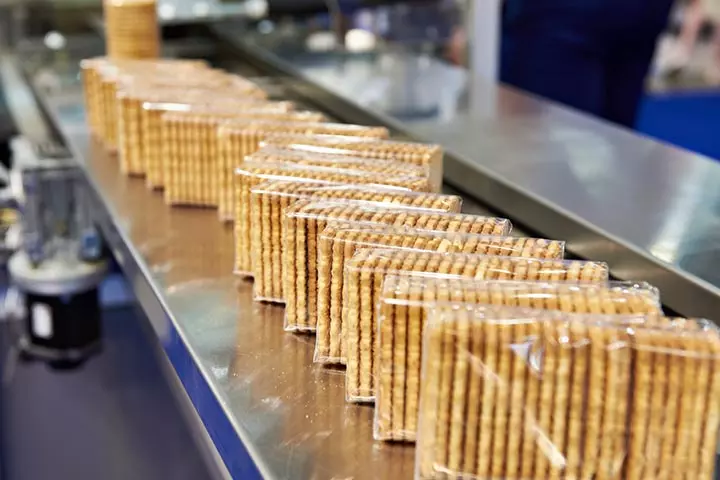
- Salt: Babies younger than 12 months require less than one gram (less than 0.4g sodium) of salt a day (11). The baby can get this sodium from breast milk or formula milk and other solids they might be eating. Thus, feeding packaged biscuits could lead to overconsumption of sodium that may affect an infant’s long-term health.
- Trans fats: Trans fats are a type of dietary fats that form when vegetable oils are hydrogenated (12). They are known to raise the levels of LDL cholesterol (bad cholesterol) and decrease HDL cholesterol (good cholesterol). Over a period, trans fats consumption may trigger health issues, such as heart diseases (13) (14).
- Emulsifiers: An emulsifier stabilizes the fat and water emulsion in biscuits. It may be considered a minor additive, but recent studies show that emulsifiers may alter gut microbiota and cause digestive health issues (15) (16).
- Other synthetics: Raising agents, dough conditioners, flavors, artificial colors, and preservatives are some synthetic substances that biscuits may contain and it is something you definitely do not want your baby to eat. These substances could be harsh on your little one’s gastrointestinal system.
- Hidden allergens: Biscuits may contain hidden allergens, such as milk solids, soy, and peanut, which may trigger an allergic reaction or cause intolerance in susceptible babies. It’s important for parents to be aware of food allergies in babies, as even trace amounts of these hidden allergens can pose risks. Identifying these allergens by reading the labels may not always be possible since some manufacturers may not mention these ingredients.
Recalling the time when her baby girl (allergic to dairy) tried packaged malted milk biscuits for the first time, an anonymous mother says, “Once she’d eaten them, all we could do was sit and wait to see what happened next. Baby seemed fine, so we tried again the next day. That night, she didn’t sleep that well. Later, when she pooped, it was quite soft, not hard (as it would be if she were constipated), and it was more yellow than normal. It was the familiar mustard yellow color caused by milk. It stank to high heaven, too. As I cleared it away, I could see that her skin was beginning to look irritated. That’s when I knew the game was up (i)!!”
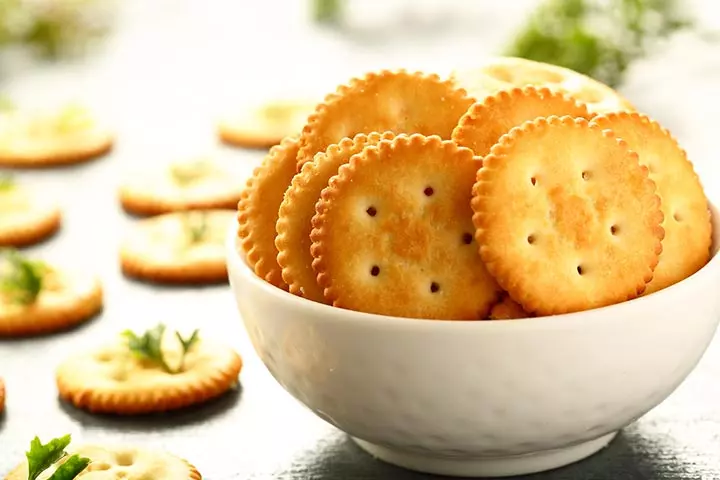
Although not all store-bought biscuits contain unhealthy ingredients, it may not always be possible to tell if they are inappropriate for the baby’s health. Thus, it is better to avoid commercial, packaged biscuits for babies.
Which Biscuits Are Suitable For Babies?
Unsweetened homemade biscuits consisting of healthy ingredients, such as whole grains, millets, pulses, fruits, nuts, and seeds, without any preservatives, additives, artificial sugars, salt, or baking powder, are suitable for babies
. Homemade biscuits should be fed to the baby in moderation. They should not replace homemade baby foods, such as breast milk or formula milk, cereals, soups, purees, and porridges.
Homemade Biscuit Recipes For Babies And Toddlers
Here are some tasty and healthy homemade biscuit recipes that you can try for your baby.
1. Whole-wheat biscuits
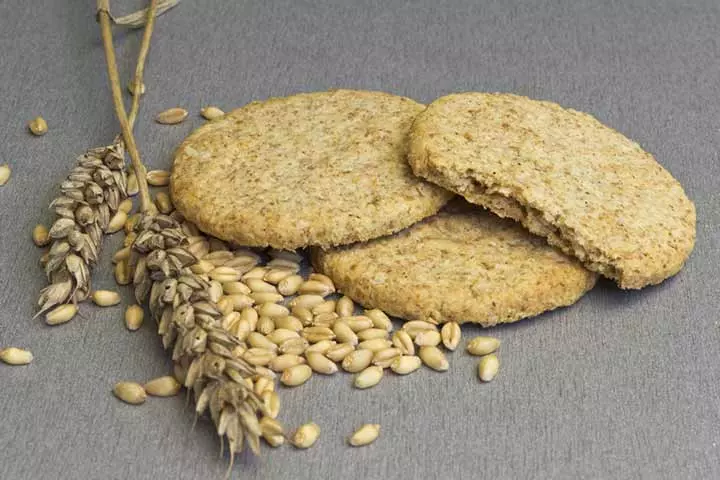
You will need:
- 1 cup whole-wheat flour
- 1tsp baking powder
- ½ cup ghee (melted)
- ½ cup jaggery powder
- ¼ tsp cardamom powder
- 2tbsp milk
- 1tbsp dry fruit powder
- 1tsp cumin seeds
How to:
- Preheat the oven to 338°F (170°C). Grease the baking tray with some ghee and set aside.
- Sieve wheat flour and baking powder together with a fine-mesh sieve.
- Add ghee, cumin seeds, and dry fruit powder to the whole-wheat flour mix. Mix well using a fork until the mixture turns into a crumble.
- Add jaggery powder and cardamom powder. Mix well.
- Add milk while rolling the wheat flour mix with your fingers. Make a lump-free, smooth dough. Refrigerate the dough for 20 minutes.
- Divide the dough into small balls and flatten each ball with your palm to shape them into a biscuit.
- Place all the biscuits into the baking tray and bake them for 20 minutes or until biscuits start browning on the edges. Once the outer surface cracks, they will be done soon.
- Once done, remove the tray from the oven, and set aside to allow the biscuit to come to room temperature.
- Store the biscuits in an airtight container in the refrigerator. Consume within two weeks.
2. Oats biscuit
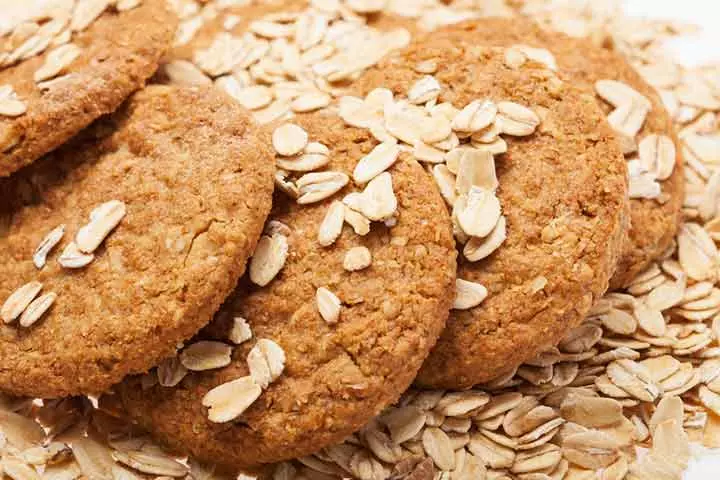
You will need:
- 75g whole-wheat flour
- 75g rolled oats
- 75g ghee
- 50g jaggery powder
- 2tbsp milk
- 2tbsp almonds, cashew, and walnuts (finely chopped)
- 1tsp baking powder
How to:
- Preheat the oven to 356°F (180°C). Line a baking tray with parchment paper and set aside.
- Sift the whole-wheat flour into a bowl and add baking powder, oats, and jaggery
- Heat milk and ghee in a saucepan over low heat for five minutes.
- Add milk and ghee to the dry ingredients and mix everything thoroughly. Take care not to add more milk as the dough will become runny and can not be used after that.
- Spoon the mixture onto the baking tray and shape them using the spoon’s back. Leave space between biscuits to provide free space to rise and spread.
- Once done, put the tray into the oven and bake for 15 minutes or until the biscuits turn golden brown.
- After 15 minutes, take out the tray from the oven and leave aside for the biscuits to cool.
- Store the biscuits in an airtight container in the refrigerator. Consume within two weeks.
3. Ragi biscuits
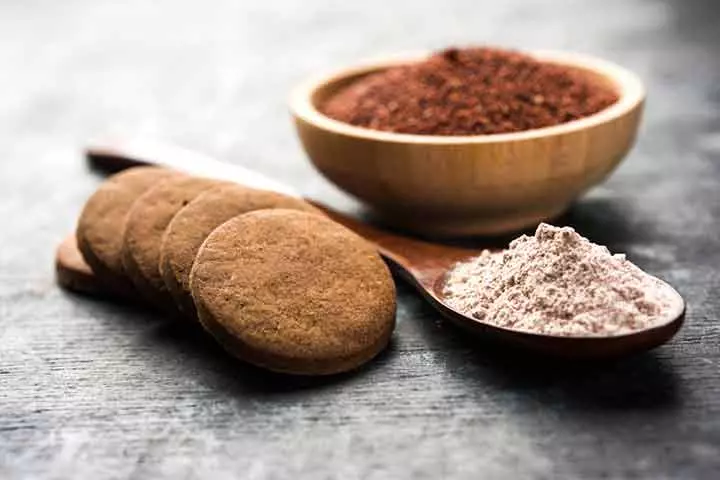
You will need:
- 4 cups ragi flour
- 2 cups ghee
- 1½ cup jaggery powder
- 2tsp baking soda
- 2tbsp cardamom powder
- 2tbsp dry fruit powder
- 2tbsp sesame seeds (roasted)
How to:
- Preheat the oven to 320°F (160°C). Grease the baking tray using a small amount of ghee.
- Put a pan on low flame and dry roast ragi flour with constant stirring until you get the aroma of the flour.
- Switch off the flame. Add ghee, dry fruit powder, sesame seeds, cardamom powder, jaggery, and baking soda into the pan. Mix well until you get a smooth, lump-free dough.
- Make small balls by rolling the dough softly between your palms and place them on the baking tray. Flatten the balls by pressing them with the back of a spoon.
- Place the baking tray into the oven and bake the biscuits for about 20 minutes.
- After 20 minutes, take out the tray from the oven and set aside to cool.
- Transfer the biscuits into an airtight container and store them in the refrigerator for up to a week.
4. Sweet potato biscuits
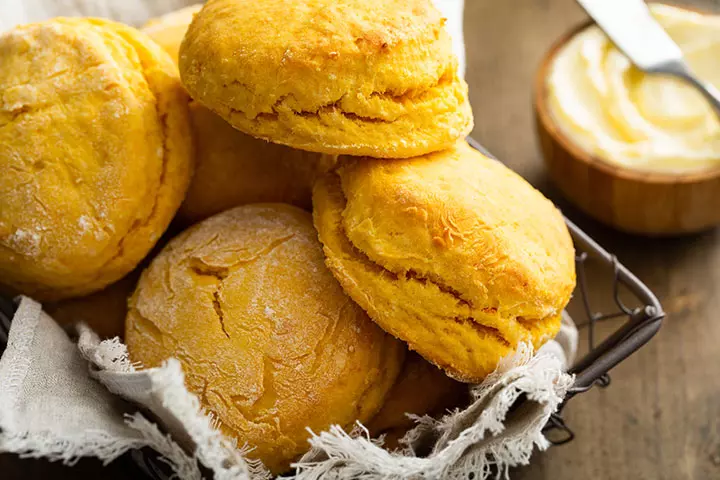
You Will Need:
- 1 cup whole wheat flour
- ¼ cup roasted and mashed sweet potatoes
- ¼ cup unsweetened almond or oat milk
- ¼ cup unsalted and softened butter
- 1tsp baking powder
How To:
- Preheat the oven to 375°F and line a baking sheet with parchment paper.
- In a bowl, combine flour, butter and baking powder. Using clean hands, mix it to form crumbs.
- To the above mixture, add the sweet potatoes and milk. Mix everything together, and the mixture will thicken.
- Gather the mixture into a ball and place it on lightly floured parchment paper. Place another parchment paper on top and roll out the dough.
- Cut the biscuits into circles or rectangular shapes using a cookie cutter. Arrange them on the prepared baking sheet.
- Bake the biscuits for 20-22 minutes or until the bottom and edges of the biscuits are golden brown in color. Cool them before serving.
 Quick tip
Quick tipFrequently Asked Questions
1. Are teething biscuits safe for babies?
Yes, introducing teething biscuits for babies is recommended once they reach 8-12 months of age. However, be careful about the constituents of the teething biscuits as they may contain sugar, which can increase the risk of cavities in babies (4) (17).
2. Do biscuits cause constipation in babies?
Yes, biscuits are usually made from wheat, refined sugars, added preservatives, and fats found to be harmful to babies. In particular, wheat contains gluten, which has been shown to cause functional constipation in babies when introduced early in life (18) (19).
3. Are digestive biscuits good for constipation in babies?
No, even digestive biscuits are made of wheat flour, sugars, and other preservatives that can cause constipation in babies.
4. Do biscuits cause gas in babies?
Yes, some ingredients in biscuits, including wheat, sugar, and fibers, are known to cause gas (19) (20).
5. Are biscuits good for an upset stomach in infants?
No, in contrast, introducing biscuits to infants is associated with various stomach problems, including gas and constipation.
6. What are some healthy ingredients for homemade biscuits?
You can make homemade biscuits safe and nutritious by swapping some ingredients for healthier options. Use whole-wheat flour instead of all-purpose flour, as it is high in fiber and has a lower glycemic index. Replace sugar with jaggery, a natural sweetener rich in iron and minerals. Opt for ghee, coconut oil, or olive oil for healthy fats, and add yogurt, flaxseed, or chia seeds as a binding agent instead of eggs.
You can prepare biscuits for babies at home using sugar, salt, flour, ginger powder, onion, curry leaves, and eggs. Though commercial biscuits are a popular snack among adults, they are not advisable for babies since they may contain refined flour, refined sugar, trans fats, emulsifiers, and other synthetics. Instead, add healthier alternatives, such as homemade whole-wheat biscuits, ragi biscuits, and oat biscuits, to your baby’s diet. Further, ensure you store these biscuits safely and hygienically and feed them to your baby in moderation.
Infographic: Some More Homemade Biscuit Recipes For Babies And Toddlers
Since it might be harmful to your babies and toddlers to eat store-bought cookies and biscuits, baking this convenient finger food at home could be the best option you may find. You can choose and try a variety of healthy ingredients and combinations to bake healthy cookies and biscuits at home. Take a look at this infographic below for some healthy and easy recipes. Illustration: Momjunction Design Team
Illustration: Biscuits For Babies: Safety And Healthy Homemade Recipes

Image: Stable Diffusion/MomJunction Design Team
Experience the gratification of whipping up homemade teething biscuits, promoting your little one’s comfort with quick and effortless preparation—a soothing remedy for their tender gums.
Personal Experience: Source
MomJunction articles include first-hand experiences to provide you with better insights through real-life narratives. Here are the sources of personal accounts referenced in this article.
i. Challenging Baby – the adventure continues?https://dairyfreebabyandme.blogspot.com/2013/03/challenging-baby-adventure-continues.html
References
1. Help your baby enjoy new foods; NHS
2. When should my baby try their first foods?; NCT
3. Complementary Foods; Wicworks; USDA
4. Feeding patterns and diet – children 6 months to 2 years; Medline Plus
5. Teething; Queensland Government
6. What’s A Whole Grain? A Refined Grain?; Whole Grain Council
7. Whole Grains, Refined Grains, and Dietary Fiber; American Heart Association
8. Is Your Child Constipated?; California Department of Public Health
9. Added sugar in kids’ diets: How much is too much?; AAP
10. Alan Gaby; A Review of the Fundamentals of Diet; NCBI
11. How much salt do babies and children need?; NHS
12. Trans Fats; American Heart Association
13. Healthy fats and unhealthy fats: the basics; Raising Children
14. 6 Ways To Eliminate Trans Fats From Your Family Diet; CHOC
15. Partridge et al.; Food additives: Assessing the impact of exposure to permitted emulsifiers on bowel and metabolic health – introducing the FADiets study; NCBI
16. Emulsifiers in food cause many adverse health effects in mice; Microbiome Institute
17. Healthy teeth for children; Canadian Paediatric Society
18. J C Kiefte-de Jong et al.; Infant nutritional factors and functional constipation in childhood: the Generation R study; NCBI
19. Chapter 16 – Ingredients for Biscuits: An Introduction; ScienceDirect
20. Foods that May Cause Gas; IIFGD
21. Effects of weaning biscuits on the nutritional profile and the cognitive development in preschool children; Effects of weaning biscuits on the nutritional profile and the cognitive development in preschool children
Community Experiences
Join the conversation and become a part of our nurturing community! Share your stories, experiences, and insights to connect with fellow parents.
Read full bio of Seeemaa Budhraja
Read full bio of Swati Patwal
Read full bio of Rohit Garoo
Read full bio of Ghazia Shah










